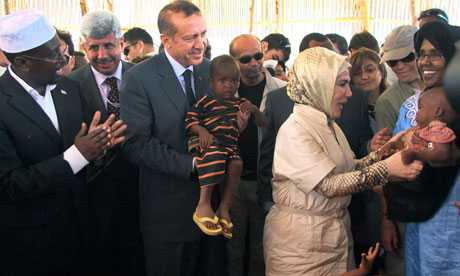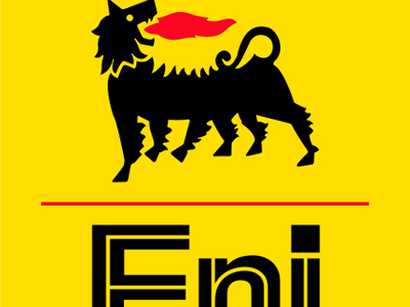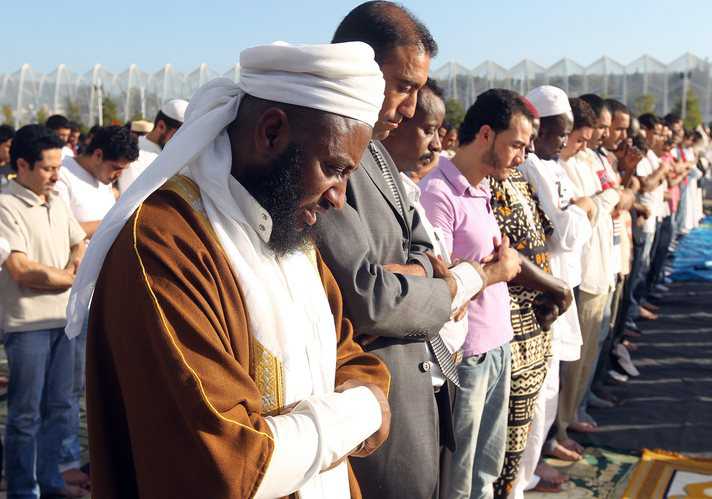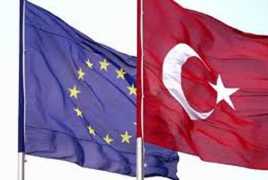
The Turkish prime minister, Recep Tayyib Erdogan, and his wife, Emine Erdogan, hold children during a visit to a refugee camp in Mogadishu, Somalia, in August 2011. Photograph: Farah Abdi Warsameh/AP
Turkey and South Korea, nations that have watched their own fortunes surge in a generation, are ramping up aid programmes for poor nations at a time when such spending in Europe is under threat, a EurActiv analysis of aid statistics shows.
EU candidate Turkey and South Korea are among a handful of nations that are giving more to help poor countries at a time when the traditional heavy-hitters – the EU, Japan and the US – are struggling with domestic budgetary problems and are scaling back their overseas commitments.
EU leaders meeting in Brussels this week are to consider austerity measures that could reduce the EU’s foreign aid spending by 11% in the 2014-2020 budget, while several EU nations are likely to miss their aid commitments to disadvantaged nations.
Sylvia Tiryaki, the vice-chairwoman of Istanbul Kültür University’s international relations department, said Turkey was increasingly active in overseas development not just through foreign aid, but via non-governmental and charity organisations.
“One of the reasons is that Turkey itself is becoming richer and the economic situation here is much better than it is in other countries, so we can afford it,” Tiryaki said in an interview from Ankara.
Turkey’s help to Egypt following the Arab spring, as well as in fragile Somalia, has been designed to bring political and economic stability in regions close to Turkey, because “poverty breeds radicalism”, she said.
Budget increases
South Korea almost tripled its spending from 2006 to 2011, easily outpacing any other donor country, while Turkey nearly doubled its overseas aid budget in the same period. Their status as emerging donors follows significant economic growth in the post-cold war period and the countries’ rise as regional economic and political powers.
Michael Ward, a senior policy analyst at the Organisation for Economic Co-operation and Development (OCED), said South Korea’s expanding aid budget stems not just from from its economic might and regional interests, but appreciation for the aid it received in the decades after its devastating civil war in the early 1950s.
“There is a strong feeling in Korea, certainly within the government, that Korea benefited hugely as country from aid after the civil war,” Ward said by telephone from OECD’s headquarters in Paris. “The older generation there remembers Korea being poor and the role that international assistance played.”
Turkey faces criticism
Nevertheless, the two emerging donors are still a long way from joining the big league, data from the OECD and development monitoring groups show.
South Korea provided $1.33bn in overseas aid and Turkey $1.3bn in 2011, out of a world total of $125.1bn.
When measured by gross national income (GNI), aid accounted for 0.12% of South Korea’s GNI in 2011, falling short of its 0.13% target, and 0.13% of Turkey’s GNI. Overall, the 24 member countries of the OECD’s Development Assistance Committee (DAC) allocated 0.31% of GNI to foreign aid, and the EU’s 2015 target is 0.7%.
Historically, Turkey has used its foreign aid to support mainly Islamic countries – and nations with historic links to its Ottoman past – in Central Asia, the Caucasus and Balkans. However, the Turkish Co-operation and Co-ordination Agency began expanding its reach to Africa, including Ethiopia, Sudan and Somalia, in 2003. It has also led relief efforts to Haiti since the earthquake there in 2010.
But Turkey has come under fire for spending money overseas while it is still a major recipient of EU and international development assistance.
In a blistering report on EU aid, the British parliament’s International Development Committee noted that sending money to a “relatively rich” country like Turkey undermined efforts to help impoverished nations.
“It is unacceptable that only 46% of aid disbursed through European institutions goes to low-income countries. It devalues the concept of aid when so much of what is defined as Official Development Assistance (ODA) goes to relatively rich countries such as Turkey,” said the report, which was released in April 2012.
The Berlin-based European Stability Initiative estimates that EU pre-accession funding – including rural and regional development – for Turkey amounted to €899.5m (£777.8m) in 2012, nearly double the level in 2007. Turkey was the 20th largest development aid recipient in 2010, receiving $1.1bn, OECD and World Bank data show.
Tiryaki, who is also deputy director of the Global Political Trends Centre in Istanbul, dismisses criticism of Turkey’s joint roles as aid recipient and donor. Turkey’s foreign assistance reflects the country’s Islamic “understanding of providing help to the poor”, she said. “You have to give a part of your earnings, a part of your income, to those who don’t have anything.”
Reforms urged in South Korea
Unlike Turkey, South Korea is not an aid recipient. But the OECD, in a report issued last month, urged the country to revamp its aid programme, including the KOICA development agency, to improve co-operation with other international donors and to decouple aid from contracts with South Korean companies.
South Korea assists more than 20 nations, many of them in south-east and South Asia. The OECD report recommends it concentrate on fewer countries. “Spreading your aid across too many countries … does not go as far effectively as if you were concentrating the resources,” Ward said. “They’ve still got 26 priority countries, which for a donor of their size is just really too many.”
In general, though, South Korea scores good marks in OECD’s checklist of aid effectiveness and in responding to recommendations made by the organisation.
In October, South Korea’s minister of strategy and finance, Jaewan Bahk, announced the opening of a World Bank office in Korea, to find sustainable development solutions for emerging countries. At the launch, he said: “Korea is one of the few development aid recipient countries that successfully transformed to a major donor and the world’s 13th largest economy. And therefore it understands the difficulties that developing countries are facing today.
“Korea stands ready to share the knowledge and know-how gained over the course of its development.”
 Italian company Eni’s cooperation with Cyprus in the field of hydrocarbon exploration in the eastern part of Mediterranean may negatively affect the company’s projects in Turkey, Turkish Minister of Energy and Natural Resources Taner Yildiz said today, Anadolu agency reported.
Italian company Eni’s cooperation with Cyprus in the field of hydrocarbon exploration in the eastern part of Mediterranean may negatively affect the company’s projects in Turkey, Turkish Minister of Energy and Natural Resources Taner Yildiz said today, Anadolu agency reported.




